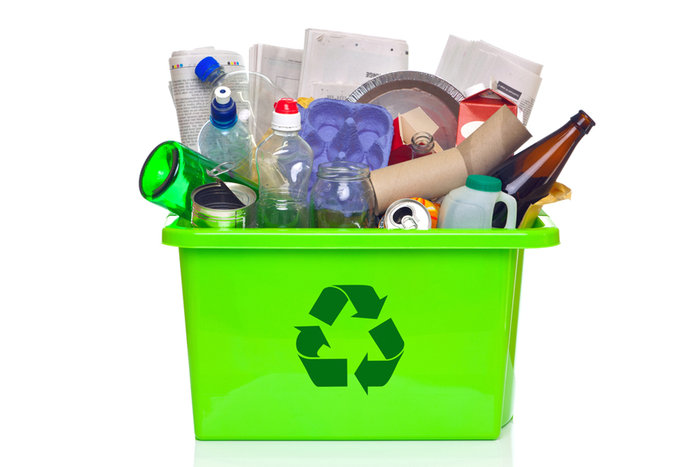Residents in Hoboken are recycling much more than they were 10 months ago – because now, it’s easier. Ever since the city decided to switch to “single stream” recycling in April 2011, which means residents can throw out all their recyclables in the same container, the amount of recycled materials collected has increased by 50 percent, according to data from the city’s garbage collection and recycling service.
In April 2011, Waste Management collected 369 tons of recycled material from what residents threw out on designated recycling days. By eight months later, in December 2011, that number spiked to 560 tons, an increase of approximately 52 percent. With 55,000 residents, that means each resident recycled about 20 pounds of material throughout the month of December.
Residents should not put their recyclables in plastic bags.
____________
“Single stream recycling lets residents combine all of their recycling into the same container: paper, plastic, glass, aluminum, cardboard, etc.,” said city spokesperson Juan Melli. “We also now accept more types of materials than before. In addition to plastics with symbols 1 and 2, we now also accept plastics with symbols 3, 4, 5, 6, and 7.”
“We’re making it more convenient for our residents to recycle,” said David Calamoneri, a management specialist for the city who works in the Department of Environmental Services. “Putting everything out on Tuesday and Thursday is easier to remember [than having different days for specific materials], because if you forget to put out bottles and cans on Tuesday, you don’t have to wait for the next week; you could just put it out on Thursday.”
Other recycling companies require residents to separate different materials into two bins.
Waste Management was awarded a contract through a bidding process in early 2011, and single stream recycling is expected to be a permanent method in the city.
After the materials are picked up, they are later sorted electronically at a facility owned by Waste Management.
No plastic bags
Residents should not put their recyclables in plastic bags, because plastic bags “are considered the worst contaminant with single stream recycling because they get tangled in the automated machinery,” Melli said.
Residents should simply put recyclables in a garbage can, without a plastic bag.
Calamoneri said that the approximately 50 percent increase “exceeds any expectations” that he had when the system was first implemented last spring. He also said that the implementation of the single stream process made it easier for schools and large residential buildings to come on board, and it reminded residents about the importance of recycling.
The journey of your recyclables
Where do Hoboken’s recycled materials go after they’ve been picked up from your curb?
“Hoboken’s recycling goes to a Waste Management facility on St. Charles Ave. in Newark,” said George McGrath, a Waste Management spokesperson.
When recyclables arrive at their Newark recycling facility, advanced technology including magnets, screens, and optical scanners are used to separate, sort, and process the materials.
Cardboard and newsprint materials typically go to export mills and can end up in Asia, McGrath said. Cardboard is used to manufacture new cardboard, newsprint is processed into recycled newsprint, and office paper is recycled for use in tissue products.
Tin, aluminum, and plastics typically go to domestic recycling mills, where they are processed into materials used to produce new cans and bottles, McGrath said.
Single stream recycling usually results in an approximately 30 percent increase above previous recycling programs, according to Waste Management, meaning Hoboken’s jump is larger than the average increase.
Ray Smith may be reached at RSmith@hudsonreporter.com
SIDEBAR
Questioning single stream recycling
Single stream recycling has yet to be completely embraced by experts in recycling. According to a Science Daily report, some items meant to be separated are combined, causing a contamination and thus a drop off in value of the recycled items.
Tom Giordano of Galaxy Recycling, the city’s former recycling provider, said his company does not use single stream recycling because of environmental and financial reasons.
“The main reason why we don’t do single stream recycling is because the recovery of the recycled materials gets lost,” he said, adding that the provider is sometimes unable to sell materials after they have gone through a single stream process.
Giordano added that one city in Maine recently did away with single stream recycling because “all the broken glass from jars and bottles mixed in with paper and cardboard, reducing the value.”
